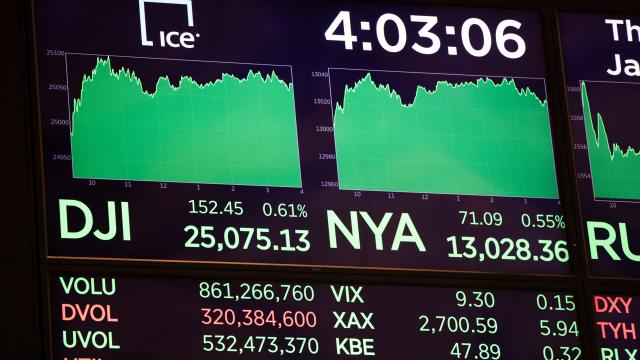Understanding and making money in the stock market is no easy task (especially given how nonsensical the ebbs and flows of a stock can be). But a recently released working paper suggests – not for the first time – that you could do pretty well for yourself by ignoring everything so-called experts say. It found that over the last 35 years, company stocks seen as sure winners by analysts on average performed much worse than stocks predicted to flop.
The researchers looked at a database of long-term growth forecasts made for all domestic companies listed on a major stock exchange. The forecasts are made in December each year, and predict how well a company’s stocks will do over the next three to five years. From 1981 to 2016, they found that the top 10 per cent of stocks analysts were most hopeful about generally had poorer growth than the 10 per cent of stocks they were most pessimistic about.
The paper found that investing in the stocks that analysts were most pessimistic in a given year about would have yielded an average 15 per cent in extra returns (in stock terms, a profit) the following year, compared to a 3 per cent return that would have been made from investing in the predicted champs.
The study, though it hasn’t yet been published in a peer-reviewed journal, is in fact merely an update of a classic study published in 1996; it too found a similarly stark contrast. Nor is this the only kind of study to find a clear gap between the professed stock expectations of analysts and actual reality. So the results aren’t exactly surprising.
“Overall, it’s a very good finding,” Andrei Simonov, a professor at Michigan State University who researches behavioural finance and who is unaffiliated with the research, tells me. “The big problem is that the growth of a stock is extremely difficult to predict. Who will be the next Google? Who knows.”
The authors of the study didn’t just stop at reaffirming this expectation gap, though; they also tried to explain why it exists. Their theory, which they say their models support, is that analysts are falling prey to a psychological bias that plagues everyone, known as “representativeness.” Put simply, it’s our tendency to over-assume patterns from a kernel of truth.
“In a classical example, we tend to think of Irishmen as redheads because red hair is much more frequent among Irishmen than among the rest of the world,” study author Nicola Gennaioli, an economist at the University of Bocconi in Italy, said in a statement. “Nevertheless, only 10% of Irishmen are redheads. In our work, we develop models of belief formation that embody this logic and study the implication of this important psychological force in different domains.”
With stocks, Gennaioli and his team theorise, analysts overvalue the sort of good financial news that could propel a company into becoming the next Google or Apple, which leads to too-rosy predictions; likewise, they also get too scared of bad news, fearing it will foretell the total collapse of a company, so they abandon ship. In reality, the top 10 per cent of stocks seen most optimistically by analysts did have more companies that broke out and had skyrocketing stock growth, but overall, most companies just weren’t the next Google and petered out. Pessimistic stocks, meanwhile, generally rebounded from their momentary stumble of bad news, leading to higher growth.
This bias may not be just inherent to stocks either: The authors have published or are planning to publish other studies that have found the kernel-of-truth effect could help explain why economic boom-and-busts happen, as well as why women stay from male-dominated fields like mathematics (men, research has typically shown, are slightly more likely to have exceptional maths abilities, which then might lead to a societal perception that only men are talented at maths). Collectively, these studies are part of a broader project, funded by the European Research Council, to demonstrate how our cognitive shortcuts can influence the economic choices we make.
Simonv doesn’t think we should entirely throw stock analysts out with the bathwater, though. “Analysts are pretty good at figuring out what will happen next year,” he says, “but when it comes to long-term growth, you should just not look at those numbers.”
